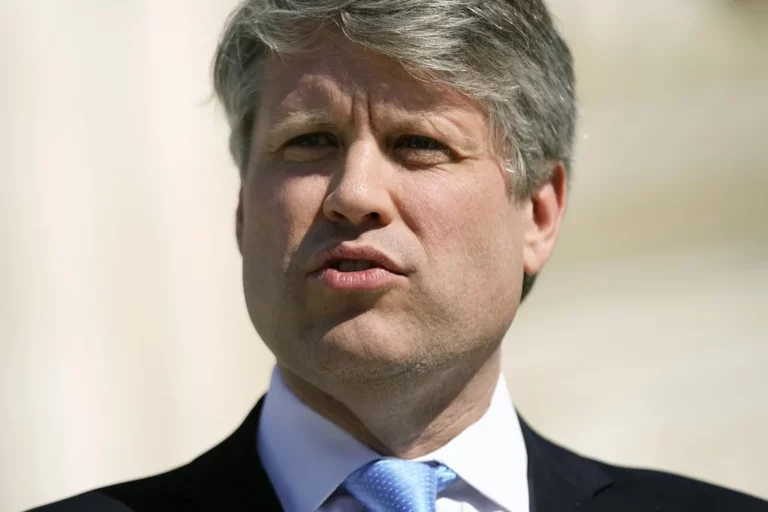
Voting rights for felons in Nebraska are in limbo after the state’s attorney general acted to toss out two voting laws.
In a moment of bipartisan unity, the Nebraska legislature passed a law, 38 to 6, earlier this year that allowed people convicted of felonies to cast a ballot immediately after completing their sentences. The state already had a similar law from 2005 that allowed convicted felons to vote two years after completing their sentences.
Nebraska Attorney General Mike Hilgers believes both are unconstitutional, leaving confusion ahead of November.

Hilgers issued a written opinion that the new law was unconstitutional, and he said the 2005 law had incorrectly interpreted the state’s constitution. He said the state constitution made it clear that “the act of restoring civil rights is a pardon and within the exclusive power of the Board of Pardons,” not the state legislature. The Board of Pardons includes the state attorney general, the secretary of state, and the governor of Nebraska.
Since his opinion last month, some people with felonies have been released from prison, and others who have reached the two-year threshold are wondering about their voting status. There are more than 7,000 Nebraskans ready to have their voting rights restored by the new law, according to RISE, a reentry program for incarcerated Nebraskans.
“I am hopeful that the Nebraska Supreme Court will quickly issue a decision prior to the November general election. We will follow whatever direction the court gives us regarding felon registrations,” Nebraska Secretary of State Bob Evnen, a Republican, said in a statement.
Last month, Evnen ordered county election officials to stop registering felons to vote who had not been pardoned due to the unclear nature of the two laws.
Opinions from the attorney general do not become law unless the state Supreme Court acts on them. Oral arguments are scheduled in the Nebraska Supreme Court on Wednesday, according to the New York Times, but it is unclear when exactly the state’s high court will rule on the matter. Evnen said he would respect the court’s decision.
“Whatever the court decides, that’s what I’m going to do. We believe in the rule of law. The court’s going to decide this issue, and whatever their decision is, we’re going to follow that decision,” Evnen said.
CLICK HERE TO READ MORE FROM THE WASHINGTON EXAMINER
During a floor debate on the bill, the bill’s co-sponsor, Democratic state Sen. Justin Wayne, said, “At the end of the day, when you have completed your sentence, when you are done, you should be able to participate in our society fully and completely.”
Nebraska is one of at least 26 states in recent decades that have eased restrictions on felon voting, according to an analysis by the Sentencing Project.








